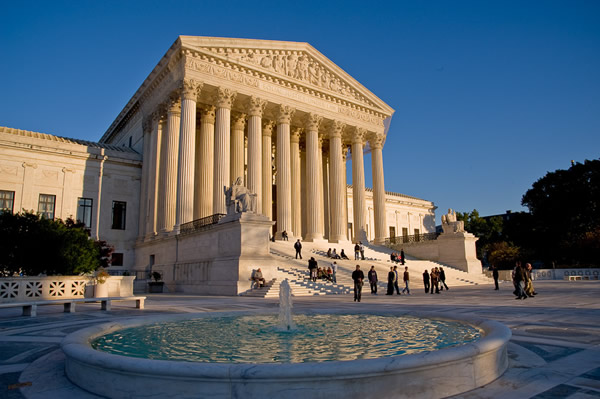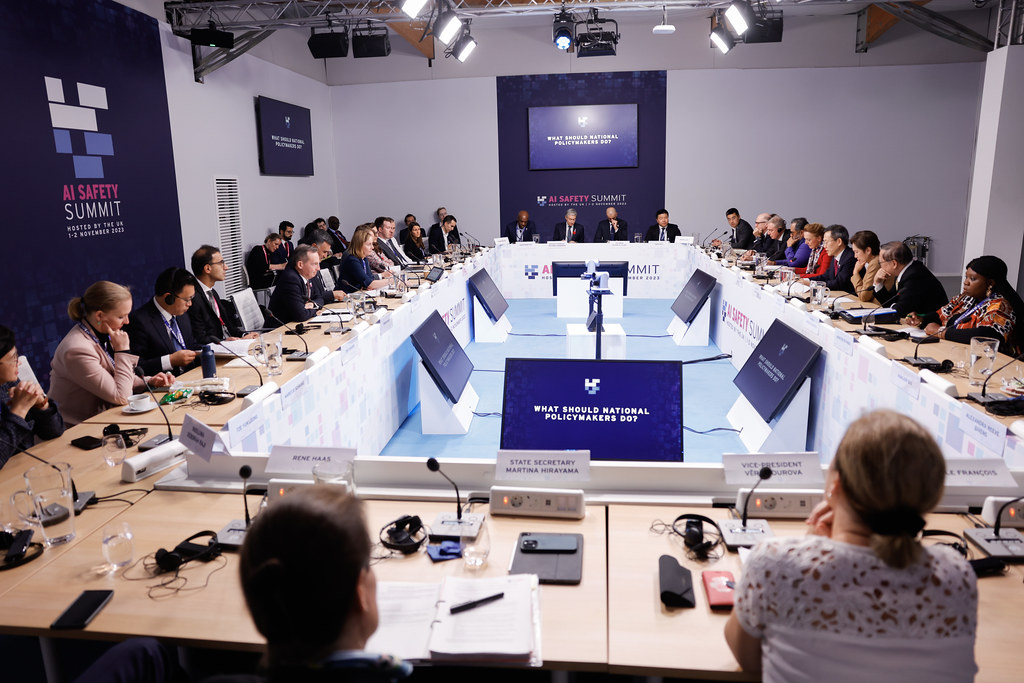An Old OLC Opinion on Whether the President Can Be Subpoenaed
A little-noticed Watergate-era opinion addresses “Presidential Amenability to Judicial Subpoenas.”
Published by The Lawfare Institute
in Cooperation With

Over the weekend, I received a surprising email from my friend Stephen Bates, a professor of journalism and media studies at the University of Nevada Las Vegas who occasionally writes for Lawfare. Partly because of Bates’s work for Ken Starr, for whom he helped write the Starr Report, Bates has a long-running interest in matters pertaining to investigations of presidents. So back in June, he sought under the Freedom of Information Act a Watergate-era Office of Legal Counsel opinion on what has once again become a timely subject: “Presidential Amenability to Judicial Subpoenas.”
Remarkably, this document appears not previously to have become public. According to the correspondence between Bates and OLC, Bates became aware of it because it is cited in a different, more famous OLC memo from 2000, entitled "A Sitting President's Amenability to Indictment and Criminal Prosecution." That memo reinforced an earlier Watergate-era memo by Robert G. Dixon Jr. entitled, “Amenability Of The President, Vice President And Other Civil Officers To Federal Criminal Prosecution While In Office.” After receiving the subpoena memo, also written by Dixon, Bates sent it my way.
I cannot promise that this memo has never become public before. Bates believes it is new, and I cannot find it on OLC’s website. Nor does it readily show up in an internet search, though I haven’t dug hard for it. Suffice it to say it has been, at a minimum, little noticed even at a time when we are actively debating, well, the amenability of the president to judicial subpoena.
Here is the memo, along with a few observations about it:
Second, the memo does not focus, for obvious reasons, on what would be the critical question if Special Counsel Robert Mueller were to issue a grand jury subpoena to President Trump for his testimony, having failed to garner a voluntary interview from him: Whether a grand jury subpoena ad testificandum is sufficiently different from a subpoena at trial for tangible evidence (tapes) so as to be meaningfully distinguishable from the case in Nixon. Steve Vladeck and I studied this question in May and concluded that “Mueller would probably prevail if and when a battle over a grand-jury subpoena makes its way into court. But it is not a sure thing, and the president has plausible arguments available to him that a court would have to work through before enforcing a subpoena for his testimony.” Bates, writing in the Washington Post, agreed, though he argued prudentially against Mueller’s pushing the matter:
In the Starr investigation in 1998, President Bill Clinton declined six invitations to testify before the grand jury. When the grand jury voted to subpoena him, the president’s lawyers said he would testify voluntarily, but the subpoena had to be withdrawn. To avoid a drawn-out court fight, Starr agreed. As a result, the courts have never evaluated the constitutionality of a subpoena seeking a president’s testimony before a grand jury. When Clinton claimed immunity in another judicial proceeding, he lost in the Supreme Court — unanimously. The same thing happened to the only other president to make such an argument, Richard Nixon.
So Mueller probably has the legal and constitutional authority, but he shouldn’t exercise it against this norm-busting president.
Third, all that said, the memo does contain some interesting analysis and conclusions. It lays out the history of Chief Justice John Marshall’s subpoena of President Thomas Jefferson to testify in the Aaron Burr treason trial and Jefferson’s response to it—which amounted to an agreement to testify but a refusal to travel to do it and consequent insistence on testifying by deposition. Subsequent presidents, the memo recounts, have followed this pattern. Dixon concludes:
The subpoenaing of a president involves a number of complex issues depending on the circumstances in which and the purposes for which the subpoena is issued. It is no answer to say with Chief Justice Marshall that the court’s power to subpoena the President is not disputed. As the Chief Justice himself pointed out, even assuming the existence of that power, the courts still would not proceed against the President in the same manner “as against an ordinary individual.” The real problem therefore lies not in the existence vel non of the basic subpoena power, as in fashioning rules which properly take into consideration the President’s special status and the particular circumstances of the case.
This analysis has proven prescient in the post-Watergate era. During Watergate itself, the matter was tested not with respect to grand jury subpoenas for testimony. As Bates notes in the Post, “Jaworski, in fact, asked Nixon to testify before the grand jury. Nixon declined, and Jaworski decided not to issue a subpoena. He thought the president would refuse to comply. Some fights were worth fighting. This wasn’t one of them.”
By contrast, when Starr sought to compel Bill Clinton’s grand jury testimony, the question did not turn out to be a binary one of whether Clinton would testify at all, because Starr withdrew the subpoena when the two sides negotiated a set of terms under which Clinton—like Jefferson—testified from the White House. And Clinton did so with a number of accomodations that prosecutors would never make for an ordinary subject. If Mueller decides to pursue Trump’s testimony, it is reasonable to expect once again the crux of the issue to be less whether a subpoena is valid per se than the specific circumstances under which testimony will take place.





